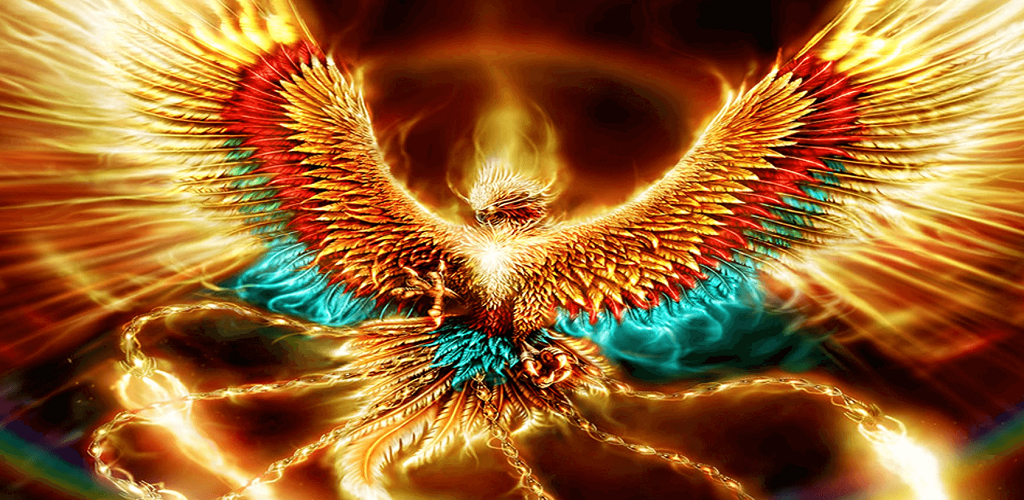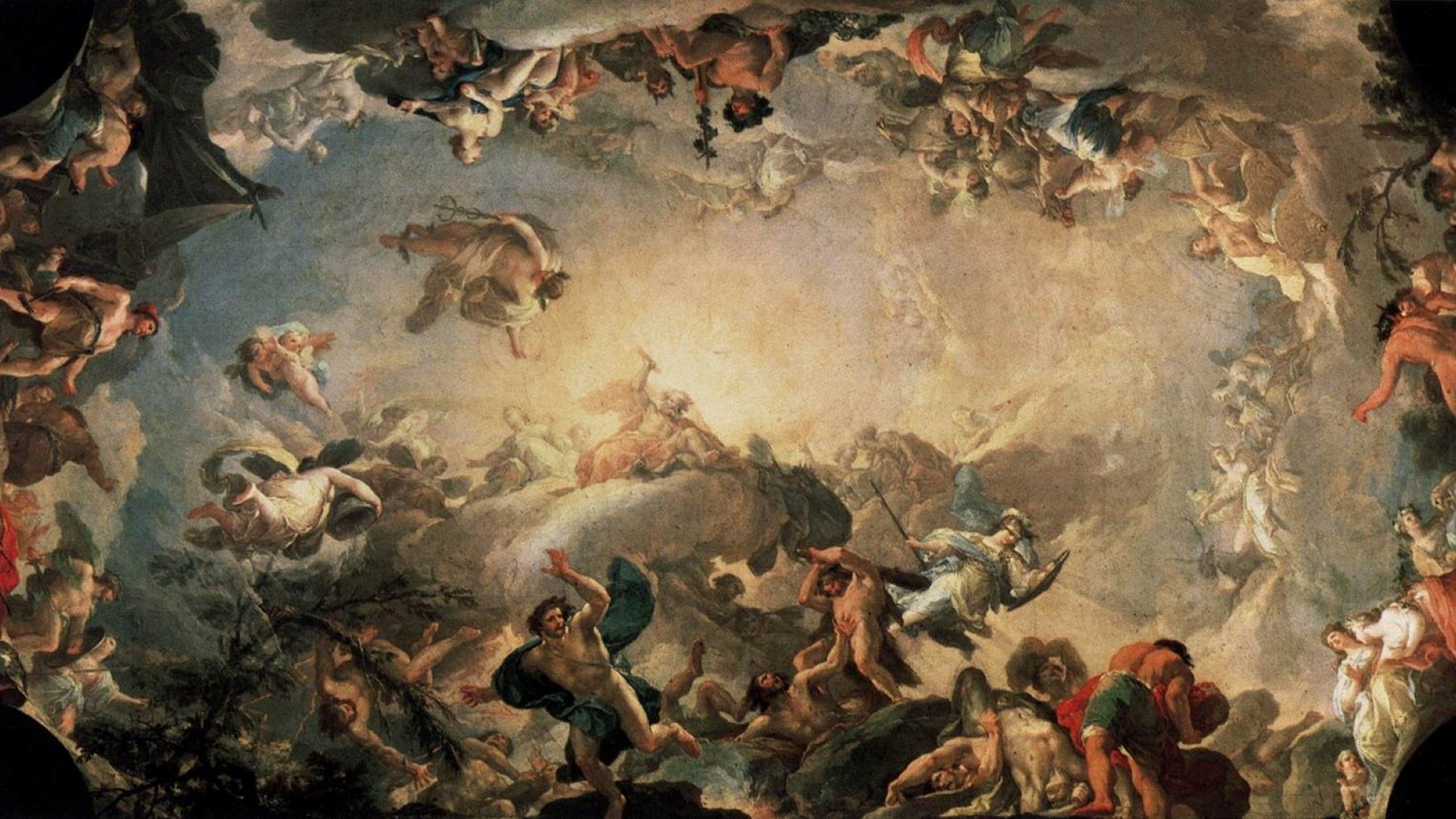
Meleager
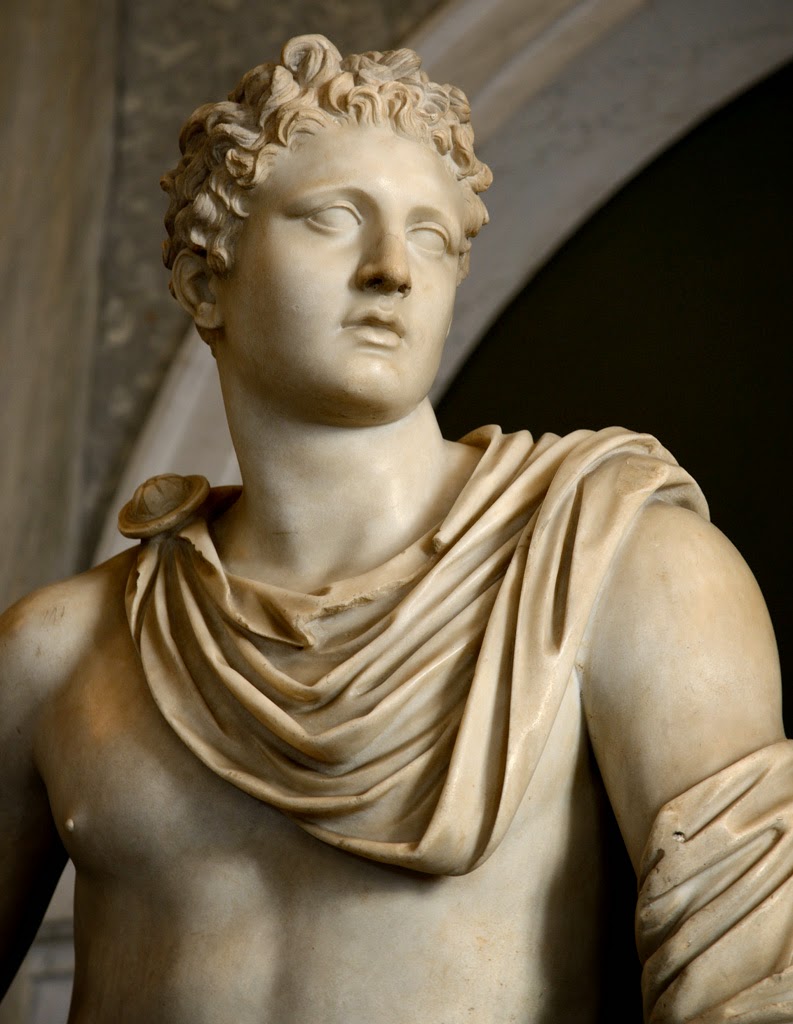
In antiquity Meleager was one of the most well known heroes of Greek mythology; although few people today are likely to recognise the name. Meleager was once named amongst the most famous of Greek heroes, as he sailed onboard the Argo, and was also the leader of the Calydonian Hunters.
THE LINEAGE OF MELEAGER
Meleager was the son of King Oeneus of Calydon in Aetolia, and Queen Althaea, the daughter of Thestius, another king of Aetolia. In the story of Meleager it would prove to be the hero's mother's side of the family who would be pivotal.
THE CURSE OF THE GREEK HERO
It is quite common today to think of Greek heroes living out their lives happily after their adventures, with most modern versions of their stories normally ending at the successful conclusion to their quest.
In antiquity though, few Greek heroes “lived happily ever after”; Theseus would die in exile from Athens, Bellerophon would live out his life as a cripple, and Jason would see his children killed by Medea.
Meleager would ultimately join the list of Greek heroes whose life epitomises a Greek tragedy.
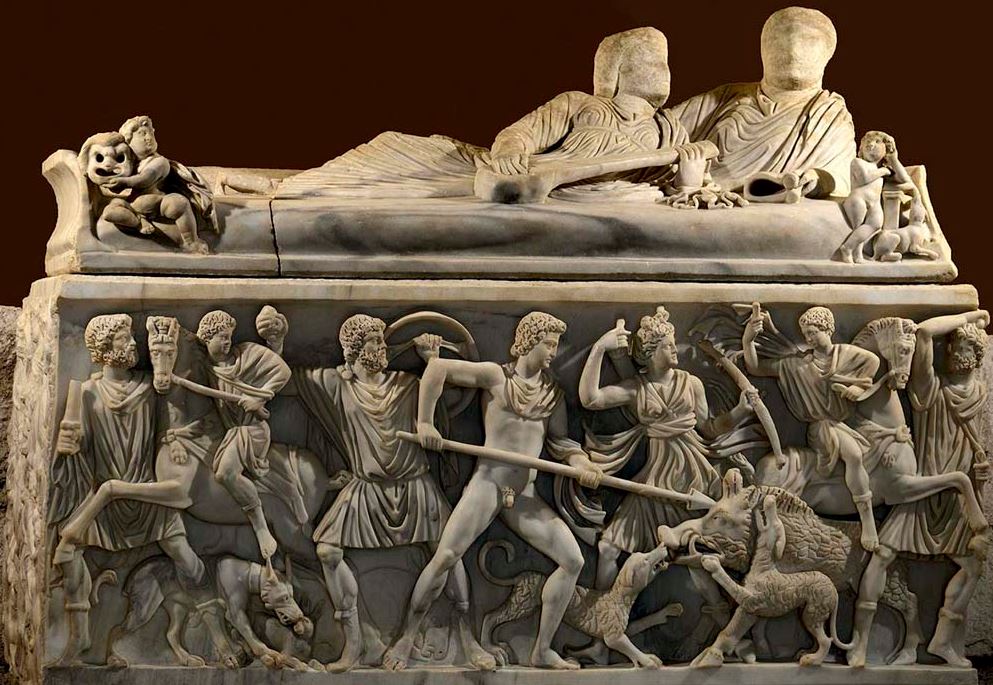
THE PROPHECY OF MELEAGER
In later antiquity, a story was told of how, when Meleager was only seven days old, the three Moirai (the Fates) appeared before Althaea. The three Moirai were Clotho, Lakhesis and Atropos, and these three sisters spun the life thread of each mortal.
The Moirai informed Althaea that Meleager would only live as long as the wooden brand, which was currently burning in the fire, remained unconsumed by the flame.
Althaea swiftly removed the brand from the hearth, extinguished the flame as she did so, and hid it away in a chest. Althaea had made Meleager virtually invulnerable, for the will of the Moirai was unchangeable by man or god.
MELEAGER AMONGST THE ARGONAUTS
Meleager would grow up in Calydon, and would soon become known across Ancient Greece for his skill with the javelin. When word came that Jason was gathering a band of heroes for a quest to Colchis, it was natural therefore that Meleager made his way to Iolcus to join the quest for the Golden Fleece. The skill of Meleager ensured that Jason accepted the prince of Calydon as one of the Argonauts.
During the voyage to and from Colchis, Meleager’s name was not at the forefront of events, but in one version of the Argonauts’ story, Meleager throws the spear which kills King Aeetes; in most versions of the story of the Golden Fleece though, Aeetes is not killed in the quest.
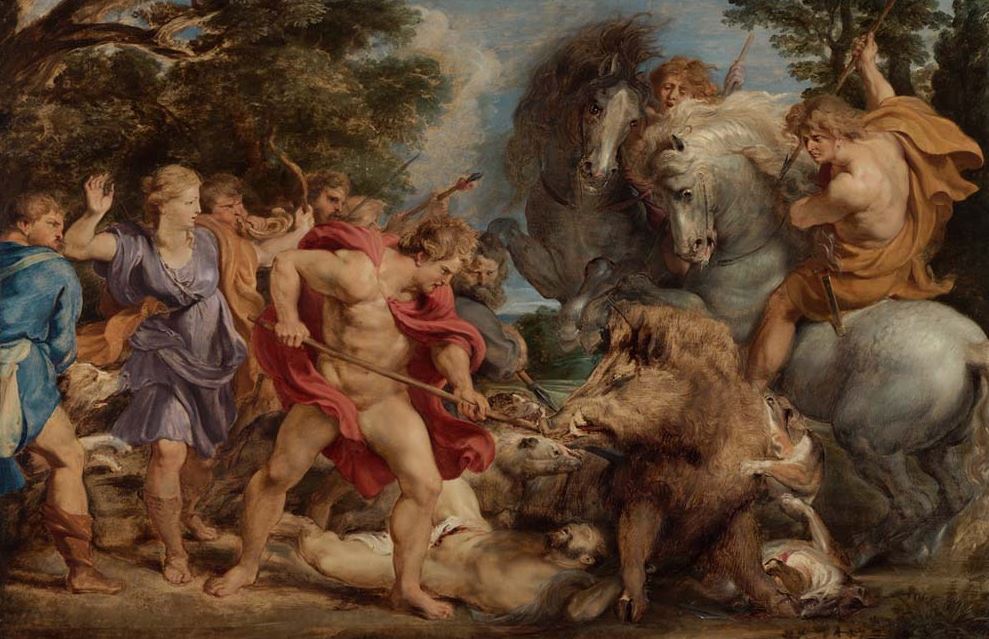
THE CALYDONIAN BOAR
Meleager returned to Iolcus with the other Argonauts upon the successful conclusion of Jason' quest, and was there partaking in the victory games, when word reached him of trouble in his home of Calydon.
Oeneus’ kingdom of Calydon was famous throughout Ancient Greece for the wine it produced; Oeneus having originally received a vine from Dionysus. At the start of each growing season Oeneus would offer up prayers to the gods.
In the year of the trouble though Oeneus overlooked the goddess Artemis. Artemis of course was angry at her omission from the annual prayers, and so the goddess sent forth a gigantic boar to ravage the Calydonian countryside.
It might be assumed that the boar was the offspring of Typhon and Echidna, although nowhere was this specifically stated in antiquity. Nevertheless, no one in Calydon could match the monstrous beast, and many died in a futile attempts.
King Oeneus therefore sent out heralds across the ancient world; and luckily one of Oeneus' heralds arrived at Iolcus just when the games were taking place. Meleager was of course duty bound to return to his homeland, but no hero worthy of the name would shirk from facing the gigantic boar, and therefore Meleager had many of his fellow Argonauts in his company when he returned to Calydon.
Others though also joined Meleager on his journey home, including the heroine Atalanta, who had been taking part in the games at Iolcus.
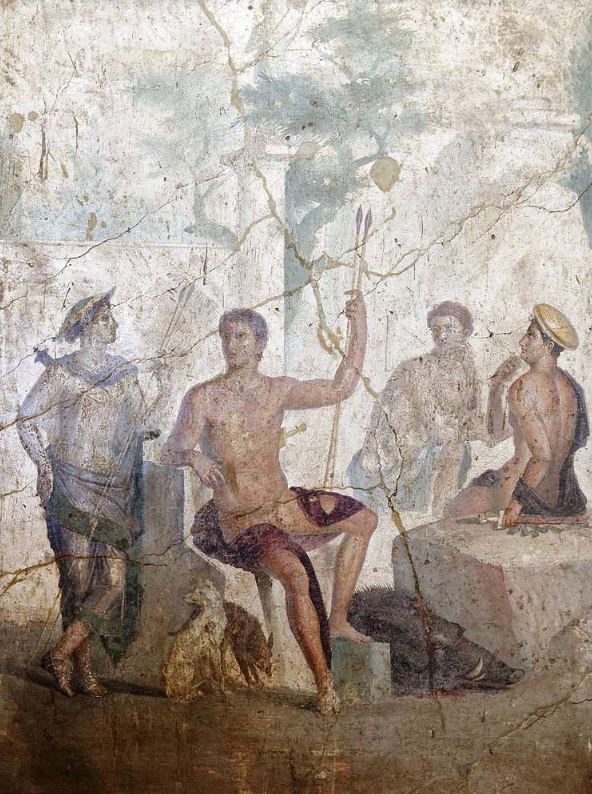
MELEAGER AND THE CALYDONIAN HUNTERS
On his return to Calydon it was logical for Meleager, as the son of King Oeneus, to be named leader of all the heroes, the collection of heroes being named the Calydonian Hunters.
Even before the Hunters set off though, Meleager had many problems to resolve.
Meleager was forced to rescue Atalanta from two centaurs, Hylaeus and Rhaecus, when they attempted to rape the Greek heroine; Meleager killing them both.
The band of Calydonian Hunters though was not a harmonious group, and Meleager had to convince many, including the brothers of his mother, Cometes and Prothous, that Atalanta was worthy of a position amongst the hunters. It was an easy argument for Meleager to make though, for the prince of Calydon had fallen in love with Atalanta, seeing in her an equal of himself.
It was a good job that Atalanta was amongst the hunters though, for the Greek heroine proved to be the first one to inflict a wound on the Calydonian Boar, a wound that injured the beast sufficiently for Meleager to finish the job off with a javelin.
The javelin that inflicted the wound was then placed by Meleager within the Temple of Apollo at Sicyon. Meleager then awarded the hide and tusks of the Calydonian Boar to Atalanta, arguing that it was the heroine who had drawn first blood.
It was a a chivalrous act, but one that did not go down well with Meleager's uncles, Cometes and Prothous. They were unwilling for a woman to take the prizes, and demanded that they should be given the hide and tusks if Meleager was not going to take them himself.
So affronted was Meleager, that a heated argument took place between the hero and his uncles, and in that argument Meleager would kill them both.
Atalanta did take the prizes, and would ultimately depart from Calydon alone.
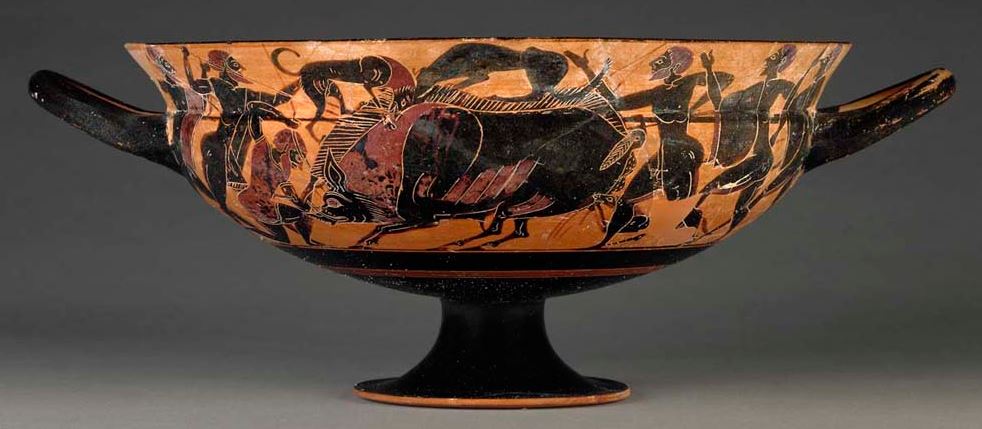
A TALE OF MELEAGER'S DEATH
The reason why Atalanta was said to have departed alone, was due to the fact that Meleager was said to be dead by that point. The most prosaic story of Meleager's death effective comes at the hands of Althaea, Meleager's own mother.
News of the death of Althaea's brothers at the hands of her son eventually reached the main Calydonian Palace, and upon hearing the news Althaea went straight to her bedroom chest, removed the wooden brand, and threw it once again into the fire. The love Althaea held for her brothers seemed to outweigh the love of her own son.
The brand would burn once again, and when the last of its wood was consumed by flame, Meleager dropped down dead.
Once she had done the deed, Althaea was said to have committed suicide.
A SECOND TALE OF MELEAGER'S DEATH
The first tale of Meleager's death was certainly in keeping with many other Greek heroes, but it was a later version of the myth, for in early sources, there was no mentioned of the prophecy or wooden brand.
In the original tales a different story about the death of Meleager was told.
In these versions there was an argument between Meleager and his uncles, but it was not necessarily about the hide and tusks of the boar. Cometes and Prothous were sons of King Thestius who ruled the Curetes in the land of Pleuron, a land that neighboured Calydon, and so the argument between uncles and nephew was about territory, and this argument would lead to war.
A Calydon force, under Meleager would meet the Curetes on the battlefield, several battles would take place, and in each battle the leadership of Meleager would prove vital, for the Calydons won each one.
Althaea then placed a curse upon her own son, calling down the wrath of Hades and Persephone. When Meleager learned of the curse, the Greek hero retreated to his home, and refused to fight. With Meleager absent, the Curetes won battle after battle, gaining huge tracts of land as they did so.
Eventually, because of the gains, Meleager was forced to re-enter the battlefield, and in one final battle, Meleager killed all of the sons of Thestius, but even as he killed the last of his uncle, he himself was fatally wounded.
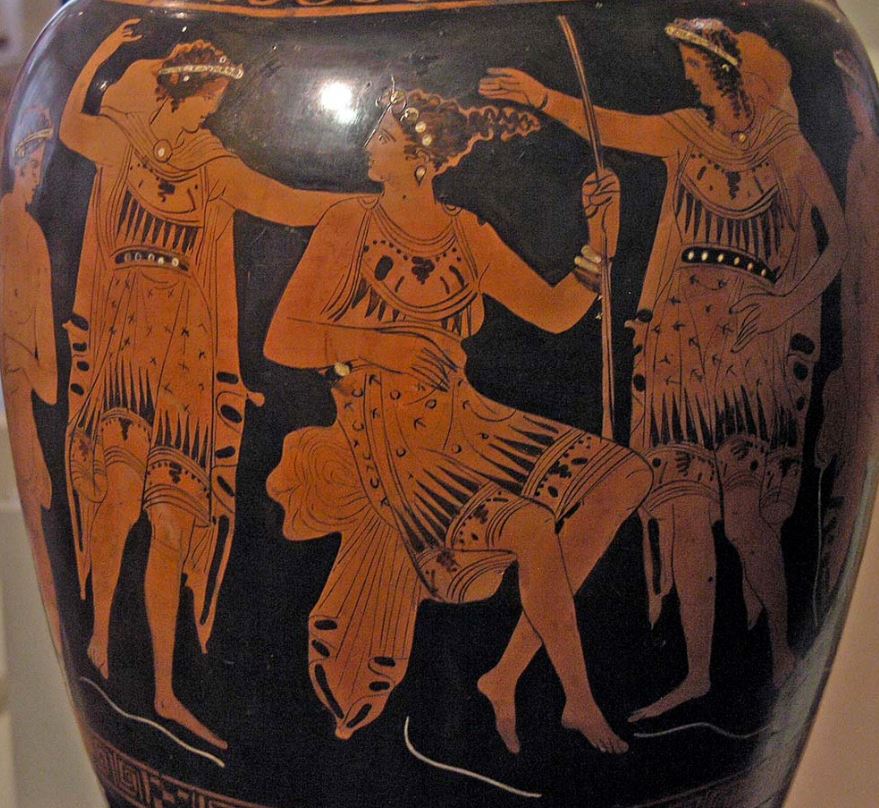
THE FAMILY OF MELEAGER
At some point of his life, Meleager was married to a woman named Cleopatra, who became mother to Meleager's daughter Polydora. Cleopatra was said to have hung herself when she learned of Meleager's death, in the same manner that her mother-in-law had. In a similar vein, Polydora would also hang herself, when her husband Protesilaus became the first Achaean hero to die at Troy.
In some surviving texts Meleager is also said to have been the father of Parthenopaeus, one of the Seven Against Thebes, by Atalanta; although Parthenopaeus was also said to have been the son of Hippomenes.
Meleager himself came from a large family with at least 6 brothers and 4 sisters. Five brothers were said to have died fighting the Curetes, these being Ageleus, Clymenus, Periphas, Thyreus and Toxeus. A sixth brother, Tydeus, would be named as one of the Seven Against Thebes, and he would also be father of the Greek hero Diomedes.
Gorge a sister of Meleager would be mother of another Achaean hero, Thoas, by Andraemon. Two other sisters of Meleager, Eurymede and Melanippe, would be transformed into guinea-fowl (Meleagrides) by the goddess Artemis, because they grieved so much for their lost brother.
MELEAGER AFTER DEATH
Even after death the story of Meleager would continue, at least briefly, for it was said that one hero was encountered by another in the Underworld. Heracles had entered the realm of Hades, and there spoke with Meleager; Meleager would ask Heracles to marry Deianira, another sister of Meleager. Heracles did indeed marry Deianira, although this hardly worked out well for Heracles.
[1]
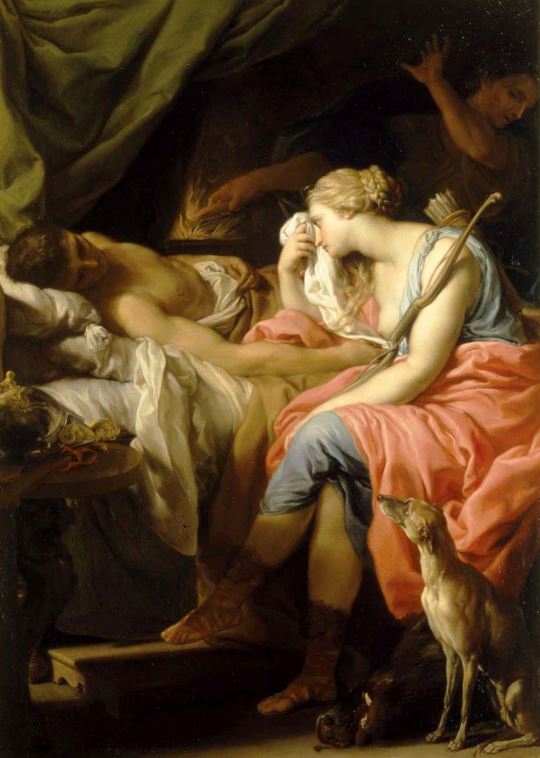
Sources
The Iliad by Homer
[1] "Greek Legends and Myths"
Our Mobile Application
Check out Our Mobile Application "Ancient Greece Reloaded"
